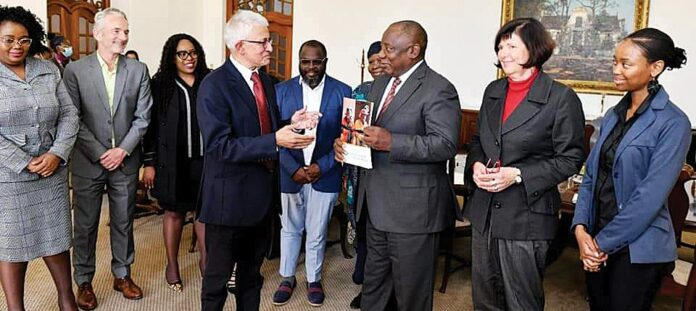Since its founding, the commission has focused on building a new model for inclusive and collective decision-making, incorporating the individuals, workers, and communities that are most affected in the transition
President Cyril Ramaphosa established the Presidential Climate Commission (PCC) in 2020 with the aim of facilitating South Africa’s transition towards a just, climate-resilient, inclusive and sustainable low-carbon economy. Given the country’s ailing energy supply, plus the devastating effects of climate change, especially on developing countries, the commission took off with its work already cut out for it. As a result, it has never taken its foot off the gas as it helps government realise a just transition.
In his State of the Nation Address (SONA) delivered on Thursday, 9 February 2023, President Cyril Ramaphosa labelled South Africa’s ongoing energy crisis as an existential threat to the economy, calling for an urgent implementation of new ways of doing things. “We will continue our just transition to a low carbon economy at a pace our country can afford and in a manner that ensures energy security,” the president said, assuring the nation that the transition would be undertaken in a manner that creates new jobs and leads to investment and industrialisation opportunities.
The president’s SONA emphasised the important role of the Presidential Climate Commission in making sure that no one is left behind in the transition. He added that since its founding, the commission had focused on building a new model for inclusive and collective decision-making, incorporating the individuals, workers, and communities that are most affected in the transition.
While carrying out its responsibilities to guide South Africa’s just transition, the PCC has focused on strengthening the country’s pool of knowledge when it comes to just and equitable climate action. Again, the commission prioritised communications and transparent engagements with different communities to make sure that “the energy transition will benefit all” as president Ramaphosa previously promised.
The commission began its work with a R131-billion deal signed at the climate change convention held in Glasgow. The Just Energy Transition Partnership (JETP) featured the European Union, France, the UK, Germany and the US. Among others, the partnership’s priorities include the phasing out coal-fired electricity generation, increasing investment in renewable energy and boosting the manufacturing of electric vehicles.
The funds are managed by the Presidential Climate Finance Task Team, chaired by former deputy governor of the South African Reserve Bank,
Daniel Mminele. The PCC continued to support the work of the task team in different ways, such as holding stakeholder consultations and capacity building workshops ahead of the release of the country’s Just Energy Transition Investment Plan (JET-IP) in November 2022.
President Ramaphosa reported on Thursday that a number of projects were already in motion in provinces such as the Free State, Northern Cape, Limpopo, KwaZulu-Natal as well as Gauteng. The president committed more funds towards realising the transition justly, inclusively and efficiently.
“Through the Just Energy Transition Investment Plan, R1.5-trillion will be invested in our economy over the next five years in new frontiers such as renewable energy, green hydrogen and electric vehicles,” he revealed.
Last year, the Presidential Climate Commission finalised South Africa’s just transition framework and submitted it to president Ramaphosa. The framework, which was accordingly adopted by cabinet in August of the same year, sets out a shared vision as well as guiding principles for the just transition. Furthermore, it proposes policies and governance procedures that will inform the just transition.
These recommendations come from broad consultations with different stakeholders, benchmarking exercises against international best practices as well as new research conducted by government, the business community, academics, labour unions and civil society.



